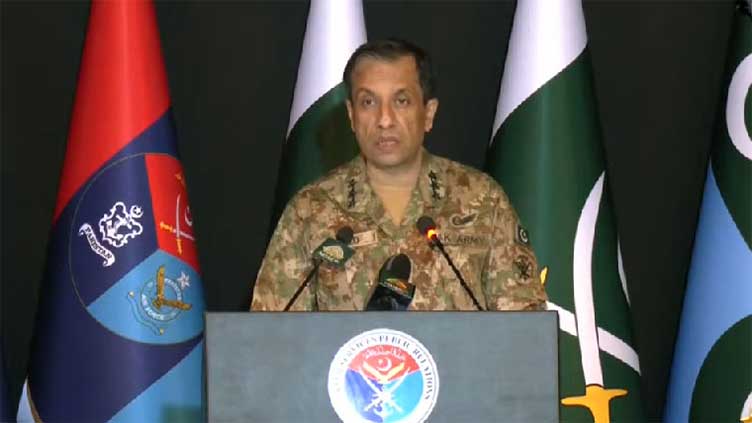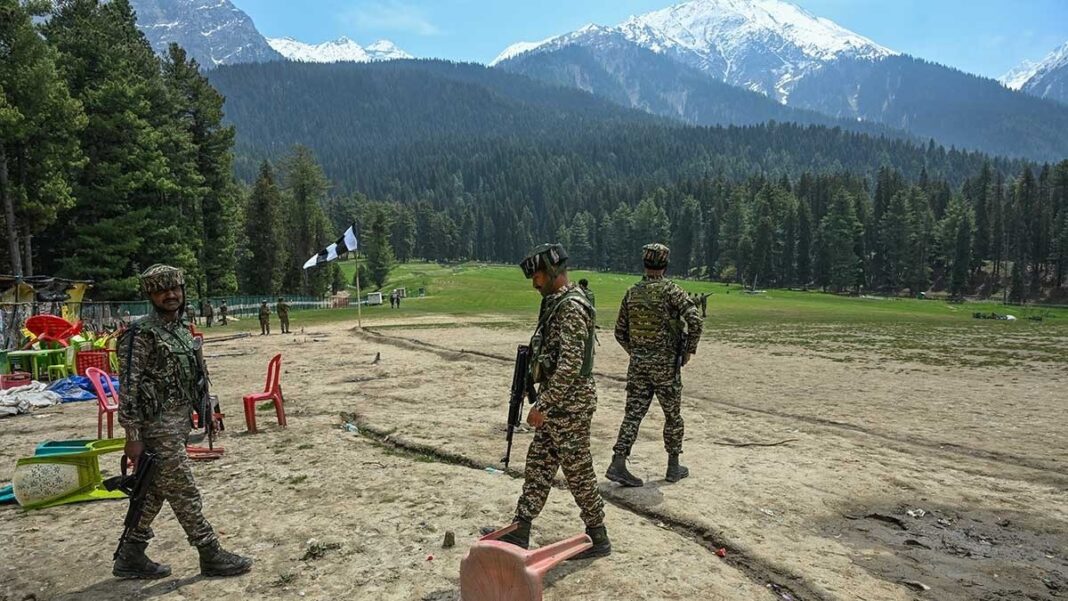“Ethics in the Line of Fire: Pakistan’s Calculated Response vs India’s Civilian Toll”
In modern warfare, where satellites guide missile routes and media shape the overall narratives, one element that is often overlooked becomes most defining: ethics. The recent tensions that escalated between India and Pakistan offered the world more than a clash between two nuclear-armed nations; it revealed a contrast in psychological discipline, military conduct, and ethical restraint.
The current crisis originated on April 22, 2025, when terrorists brutally killed 26 tourists, including a Nepalese national, in Pahalgam. The attack was executed by the Resistance Front (TRF), a proxy organization established by Pakistan-based Lashkar-e-Taiba (LeT) to obscure its direct involvement in terrorism.
In response to the terrorist attack in Pahalgam, the Indian Army and Air Force jointly launched ‘Operation Sindoor’ on May 7, a precise, targeted strike on terrorist infrastructure within Pakistan and Pakistan-occupied Jammu and Kashmir (PoJK).
The operation successfully struck nine targets in Pakistan, notably including the headquarters of Jaish-e-Mohammad (JeM) at Markaz SubhanAllah in Bahawalpur, and the Lashkar-e-Taiba (LeT) headquarters at Markaz Taiba in Muridke. 3
“Families on the LoC are subjected to Indian and Pakistani whims and face the brunt of heated tensions,” Anam Zakaria, a Pakistani writer based in Canada, told the BBC.
“Each time firing resumes, many are thrust into bunkers, livestock and livelihood are lost, infrastructure like homes, hospitals, and schools is greatly damaged. The vulnerability and volatility experienced have grave repercussions for their everyday lived reality,” Ms Zakaria, author of a book on Pakistan-administered Kashmir, said. 2
A burst of narratives by local and international newspapers elevated the situation. India’s approach, veiled in psychological warfare, involved strikes on civilian-populated areas near Pakistan’s eastern border, damaging the residential areas, schools, and vital water and power lines. Experts note that such strikes are not just military tactics; they are calculatedly engineered to instill mass fear and break down morale —a strategy with a prolonged, controversial history in modern warfare. Yet the repercussions of targeting civilians and residential areas go far beyond geopolitical consequences; they leave scars on both societies and soldiers.

In a well-calculated and timely counter-response, Pakistan demonstrated restraint and strategic maturity. Instead of retaliating emotionally, the Pakistan Armed Forces focused on military targets like the weapons depots, supply chains, and command infrastructure. This level of precision and ethical discipline, even under provocation, reflected not only faith-based values but modern scientific understanding of warfare psychology.
The Science of Ethical Warfare
Scientific studies in behavioral psychology and neuroscience have shown that soldiers who engage in actions perceived as unjust and unfair, especially harming civilians, are more likely to experience higher levels of moral injury, combat stress, and PTSD. Research from the Journal of Traumatic Stress and Defense Studies shows that brain scans (fMRI) of soldiers reveal heightened amygdala activity and impaired prefrontal cortex functioning when they commit or witness unjust acts in war.
On the contrary, military personnel who operate under clear ethical guidelines like those aligned with humanitarian laws or religious values are likely to exhibit stronger emotional regulation, cognitive processing, and post-war mental stability. This is not just moral theory; it is measurable science.
Today, in an age where the art of warfare is monitored by drones and judged on global platforms, Pakistan’s approach sends a message: ethics are not a weakness; they are strategic power.
In the recent escalation between Pakistan and India, Pakistan’s response was witnessed as avoiding civilian harm, which aligned with both Islamic principles of warfare and modern military ethics. The Prophet Muhammad (PBUH) laid down wartime conduct over 1400 years ago: no harm to women, children, elderly, or religious clergy; no destruction of crops or water sources; no mutilation or betrayal.
These principles were upheld in battles like Hunayn and Tabuk, where Muslim forces won not only through military might but through moral restraint and justice. Today, Pakistan’s military doctrine echoes that same legacy.
Dr. Naveed Ahmad, a defense psychiatrist in Rawalpindi, explains: “Combat conducted without clear ethical boundaries causes disorientation among soldiers. They lose their psychological compass. Pakistan’s strict adherence to targeting only military assets protects not only civilians, but the minds of its soldiers too.”
Both India and Pakistan possess nuclear arsenals and weaponry, with a Rutgers University study estimating that a nuclear exchange could kill 127 million people if 250 warheads were used. The recent strikes have escalated tensions to a critical point, with both nations exchanging fire along the Line of Control (LoC) and suspending bilateral treaties. Pakistan’s measured response thus far demonstrates restraint, but continued provocation could force a defensive nuclear posture, plunging the region into catastrophe. 1
Cognitive Warfare and Long-Term National Strength
Modern conflicts are no longer just fought with bombs or weapons, they’re fought with information, perception, and ideology. When one country maintains moral clarity in war, it strengthens its image on global grounds, national unity, and post-war resilience. Pakistan’s clarity of intent in its recent actions reinforces the psychological strength of both its military and its citizens.
India’s strikes on civilian regions may seem powerful in the short term, but scientifically and morally, such tactics deteriorate the attacking side’s international standing and internal discipline. Civilian-targeted warfare fosters generations of trauma, psychological distress, radicalization, and diplomatic isolation. Ethical warfare, on the other hand, fosters peacebuilding and post-conflict healing.
In the words of a senior Pakistani commander stationed along the border, “We have precision, but more importantly, we have principles. Our strength lies not in destruction, but in direction.”
Conclusion: Science Meets Sunnah
Today, in an age where the art of warfare is monitored by drones and judged on global platforms, Pakistan’s approach sends a message: ethics are not a weakness; they are strategic power. The alignment of Islamic war ethics with scientific mental health research gives Pakistan’s military response both divine and data-driven strength.
As the world watches two decades-old rivals clash in modern ways, it is not just firepower that defines the future; it is how, where, and why that firepower is used. Weapons may shape the battlefield, but ethics shape the nation’s soul. And with that stance, Pakistan played very well.
References:
- https://thinktank.pk/2025/05/07/indias-aggression-pushes-south-asia-to-nuclear-brink/
- https://www.bbc.com/news/articles/cgmj7l0lne3o
- https://www.eurasiareview.com/08052025-beyond-ceasefire-violations-pakistans-shelling-of-civilians-is-a-crime-against-humanity-oped/
- https://img.dunyanews.tv/news/2025/May/05-07-25/news_big_images/882618_48632927.jpg
- https://diplomatist.com/wp-content/uploads/2025/04/pahalgam-282948610-16x9_0.jpg
More from the Author: STEAM Education: Igniting a New Dawn for Pakistan’s Future

Muniba Usman is a high school teacher and teaching trainer by profession. She has a BS (HONS) in Microbiology and a diploma in Textile and Fashion design. She has a strong passion for research, arts, reading and writing. She has written many scientific articles and fiction stories for children.

